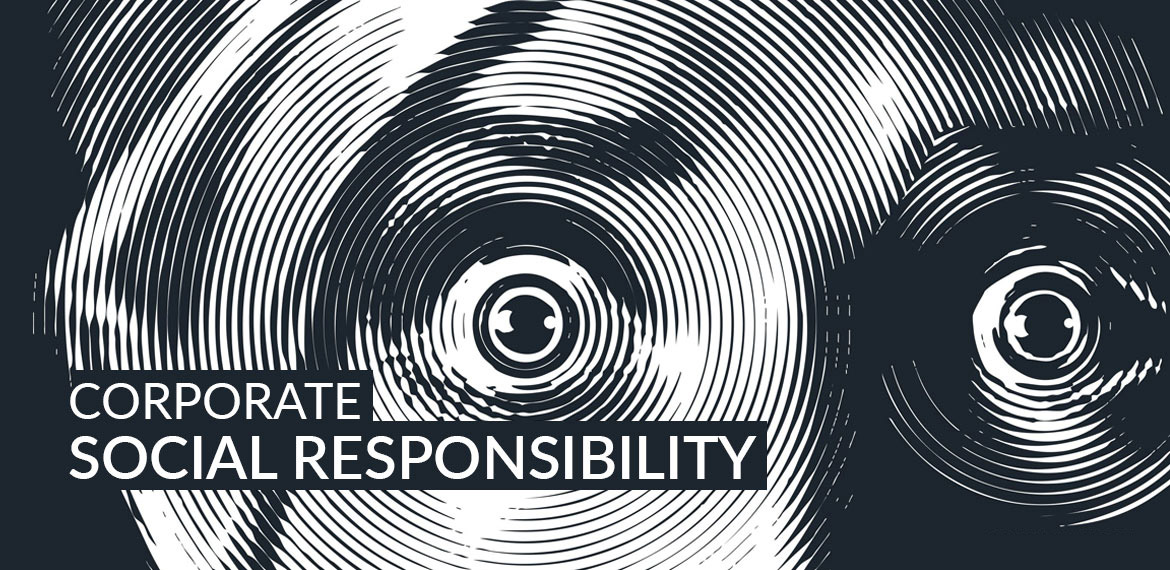Creative advertising teasers with a theme that deals with social responsibility are one of the best tools today that can target two or more arrows with one arrow. In such teasers, the audience does not see only the product that can be sold, they see humanity that is mixed with beauty and is shown in movies.
But viewers remember what brand is doing its social responsibility. The film actually has a social message and shows viewers that the organization or business does not think only of its own material interests.
Before continuing with the topic of creative advertising teasers with a social message theme, it is necessary to briefly explain the corporate social responsibility or CSR; Social responsibility refers to the brand's responsibilities to society that an organization must fulfill in addition to its responsibilities to shareholders.
But viewers remember what brand is doing its social responsibility. The film actually has a social message and shows viewers that the organization or business does not think only of its own material interests.
Before continuing with the topic of creative advertising teasers with a social message theme, it is necessary to briefly explain the corporate social responsibility or CSR; Social responsibility refers to the brand's responsibilities to society that an organization must fulfill in addition to its responsibilities to shareholders.

Create a creative promotional teaser about CSR
When a business is established in a society, it benefits greatly from its environment; It uses the air, soil and water of the country, any move that causes environmental pollution is an injustice to all members of society and future generations, so environmental social responsibility is the first area that every group must act.
For example, use cloth bags instead of plastic bags with your logo on them so that the environment is not polluted. An excellent scenario is needed to show you and your performance on environmental social responsibility in an attractive way; Using customer engagement for such ads can lead to a creative teaser ad. In this video, you can show customers coming voluntarily and distributing your envelopes across stores across the city. Of course it is worth mentioning; A cloth bag with your logo will have a longer life at your customers' place of residence and work.
For example, use cloth bags instead of plastic bags with your logo on them so that the environment is not polluted. An excellent scenario is needed to show you and your performance on environmental social responsibility in an attractive way; Using customer engagement for such ads can lead to a creative teaser ad. In this video, you can show customers coming voluntarily and distributing your envelopes across stores across the city. Of course it is worth mentioning; A cloth bag with your logo will have a longer life at your customers' place of residence and work.

A variety of creative promotional videos about social responsibility
A creative promotional film that addresses benevolent social responsibility is a structure of videos that are popular around the world. Homeless children who are waiting for your food at a certain time each month and their eyes sparkle with joy when they see them. A certain amount of money that is spent monthly to support orphaned children to study or develop their talents, and eventually they become athletes or artists or doctors, etc., who also stand by you to continue such support. When such a process is shown in a creative promotional video and the methods of joining you or asking for help are taught, many people either join you or ask for help. From now on, customers will say that the money spent on buying from you will not only increase your wealth, but also the beneficiaries.

Ethical social responsibilities in a creative promotional film
Corporate social responsibilities are not limited to people outside the community or the environment; No one buys from a company that does not comply with the following:
Performing ethical social responsibilities adds value to any business, as well as building loyalty among staff.
- Difficult living conditions of workers
- Non-observance of human rights
- Child labor abuse
- Inequality of rights between men and women
- Lack of job opportunities for the disabled
- Everyone has a deep respect for individuals or groups who value others.
Performing ethical social responsibilities adds value to any business, as well as building loyalty among staff.
A creative promotional teaser that shows the employees of a business including people with disabilities and people who have made mistakes in the past; The collections that help increase the abilities and personality growth of people are advertisements that show that working with you is enjoyable and that you are a brand that respects human beings; So buying from you is the right thing to do.
The desire to fulfill social responsibilities is the first condition for producing a creative promotional film that has a social message; Because it is your passion that is transmitted to each and every staff member and ultimately to the filmmakers so that they too can transmit this passion to the audience.
The desire to fulfill social responsibilities is the first condition for producing a creative promotional film that has a social message; Because it is your passion that is transmitted to each and every staff member and ultimately to the filmmakers so that they too can transmit this passion to the audience.



